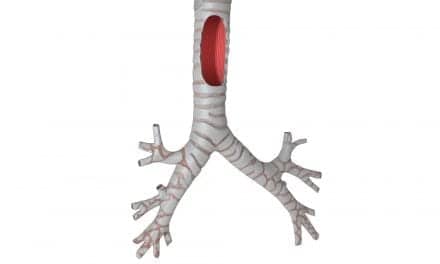Morphine delivered in a low, controlled dose reduced chronic cough from idiopathic pulmonary fibrosis, according to new research published in the Lancet Respiratory Medicine.
The research, “Morphine for treatment of cough in idiopathic pulmonary fibrosis (PACIFY COUGH): a prospective, multicenter, randomized, double-blind, placebo-controlled, two-way crossover trial,” published by scientists at Imperial College London, was a placebo-controlled trial that measured two-week cough frequency in IPF patients (age 40 to 90).
According to results, the morphine treatment group had a significant reduction in cough incidents:
- Morphine reduced objective awake cough frequency by 39.4% (95% CI –54.4 to –19.4; p=0.0005) compared with placebo.
- Mean daytime cough frequency reduced from 21.6 (SE 1.2) coughs per h at baseline to 12.8 (1.2) coughs per hour with morphine, whereas cough rates did not change with placebo (21.5 [SE 1.2] coughs per hour to 20.6 [1.2] coughs per hour).
Researchers concluded that low-dose controlled-release morphine significantly reduced incidents of chronic cough in IPF. “Morphine shows promise as an effective treatment to palliate cough in patients with idiopathic pulmonary fibrosis, and longer term studies should be the focus of future research,” they wrote.
According to Imperial College London researchers, 85% of IPF patients suffer with chronic coughing. “We need better treatments to improve the quality of life of people with idiopathic pulmonary fibrosis. Unfortunately, the disease is progressive, and even though some treatments can slow down scarring, they will not stop or reverse it. It’s good to see that morphine shows promise to alleviate coughing in these patients as it can have a negative impact on their day-to-day life,” Professor Philip Molyneaux, corresponding author from Imperial’s National Heart and Lung Institute, said in an Imperial College London news release.
Read more at www.thelancet.com
morphine chronic cough










